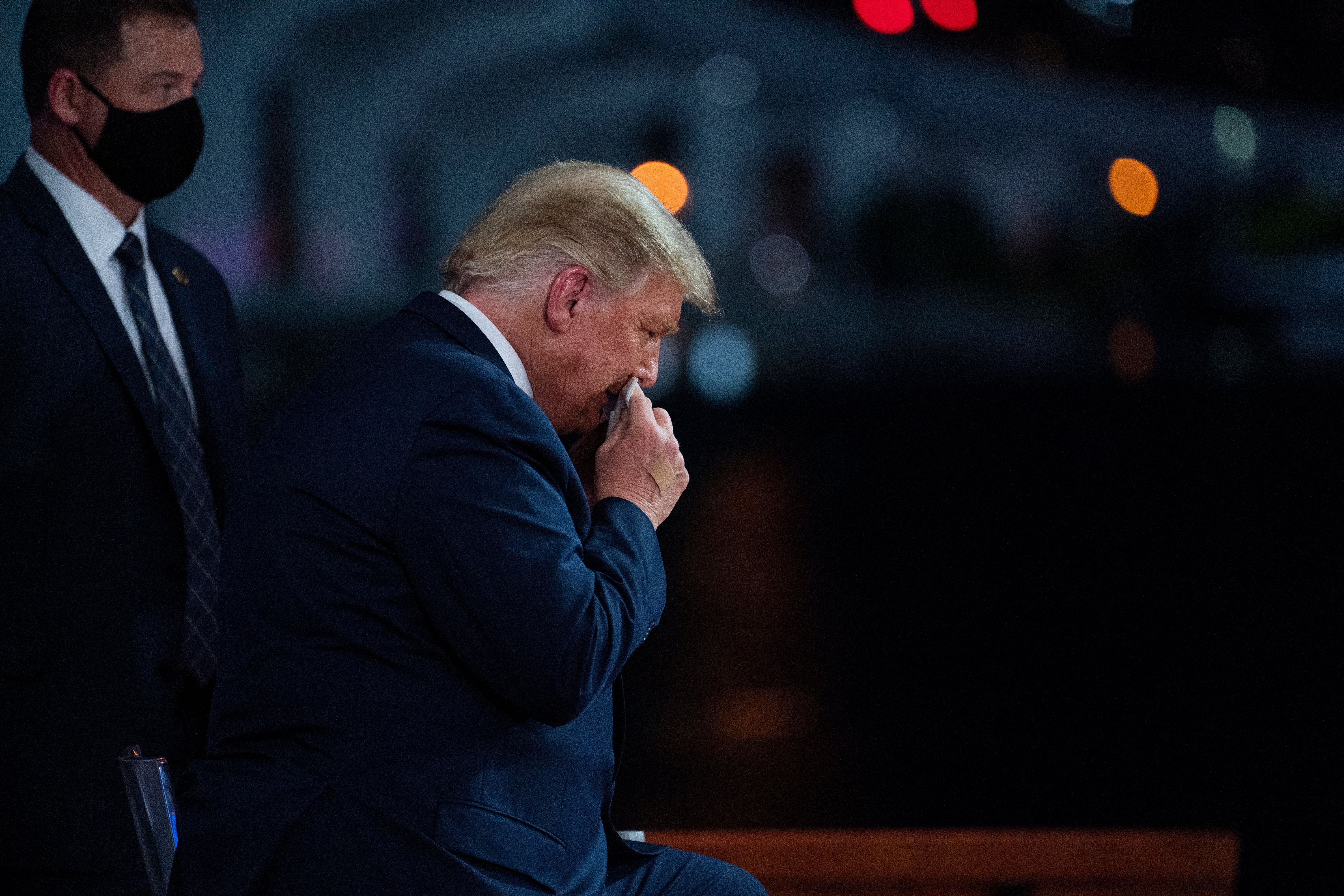Trump effort to send prescription drug discount cards before election halted amid vote-buying claims: report
Lawmakers argue plan politically-motivated with no congressional oversight

Donald Trump’s plan to send millions of senior citizens a $200 prescription savings card has run into problems amid accusations that he is trying to use taxpayer money to buy votes.
It is now unlikely that the proposal can be carried out by Election Day.
Democratic lawmakers say the timing of the plan is politically motivated and are questioning whether the government has the authority to order what would amount to billions of dollars of Medicare spending, without congressional oversight.
Representatives Frank Pallone of New Jersey and Richard Neal of Massachusetts, and Senator Ron Wyden of Oregon, accused the president of buying votes in a letter to Health and Human Services Secretary Alex Azar questioning the legality of the plan.
In response, the White House argues that Medicare can legally send out the discount cards under its authority to conduct “demonstration programs” to test new ideas.
The $200 would test if extra cash made seniors more likely to stay on their medications and avoid costly hospitalisations.
However, lawmakers contend that it is not a test to send cards to almost every Medicare recipient due to the lack of a control group with which to compare the result of the “test”.
Not including administrative expenses, the plan would cost taxpayers $7.8 billion, which would come from Medicare’s Supplemental Medical Insurance Trust Fund.
However, this spending has not been approved by Congress and were it to go ahead, it would set a precedent that would allow future administrations to spend similar amounts without any oversight.
The Associated Press reports that a White House official had no comment on the status of the prescription cards, which Trump announced with a flourish on 24 September during a healthcare speech in Charlotte, North Carolina.
Administration and congressional officials say that the questioning of the proposal has bogged down a review of the plan by agencies and departments that would be responsible for implementing it.
When he announced the idea, Trump promised that the cards would be in the mail within weeks, allowing 33 million Americans to save $200 off the cost of copays on prescription drugs.
Officials say the actual number of eligible Medicare recipients is closer to 39 million.
The announcement came as a surprise to those agencies charged with implementing the program, and experts said that while the cards might help people a little bit, they do nothing to address the problem of high prescription drug costs.
In 2016, Trump proposed that Medicare should negotiate drug prices, but he has since back off that plan. Joe Biden has now taken up the idea.
With reporting from the Associated Press
Join our commenting forum
Join thought-provoking conversations, follow other Independent readers and see their replies
Comments



Bookmark popover
Removed from bookmarks